The Art of Silence: A Guide to Building the Ultimate Ultra-Quiet Home Server
Last updated on
What if you could have a powerful server in your home, running 24/7, whose presence you barely feel? This is a complete guide to building an “ultra-quiet home server”—a machine that offers infinite possibilities as a file server, media streamer, or personal cloud, all without disturbing your peaceful daily life.
This guide presents component selection criteria and recommended combinations to achieve two core objectives: ① near-perfect silence and ② 24/7 operational stability.
Note: This guide focuses on building an ultra-quiet home server using components like the AMD Ryzen PRO 35W CPU and ECC UDIMM memory, which may be difficult to find domestically in some countries like Korea. These parts can be sourced relatively easily from international online marketplaces such as AliExpress.
Principle 1: “Stability” for 24/7 Uninterrupted Operation
The most important virtue of a home server is stability. The key to this lies in the combination of ‘ECC Memory’ and a ‘CPU and Motherboard’ that officially support the ECC feature.
What is ECC Memory and Why is it Necessary?
ECC stands for “Error-Correcting Code”. Unlike common Non-ECC memory, ECC memory uses extra data bits to detect and automatically correct minute errors (like bit flips) that can occur during data processing in real-time.
In a 24/7 home server environment, even a single, trivial memory error can lead to critical data corruption or a full system crash. Using ECC memory for a home server that must safely store precious family photos, important documents, and media libraries is an essential investment for stability, much like buying expensive insurance.
The 3 Key Elements of Stability: CPU, Memory, and Motherboard
CPU: AMD Ryzen PRO (Low-power 35W model)
This is the optimal choice, offering support for stable ECC memory, reasonable pricing, and low heat output. Unlike standard Ryzen CPUs, the PRO models officially support the ECC feature, and the 35W low-power models (GE series) play a crucial role in building an ultra-quiet environment.
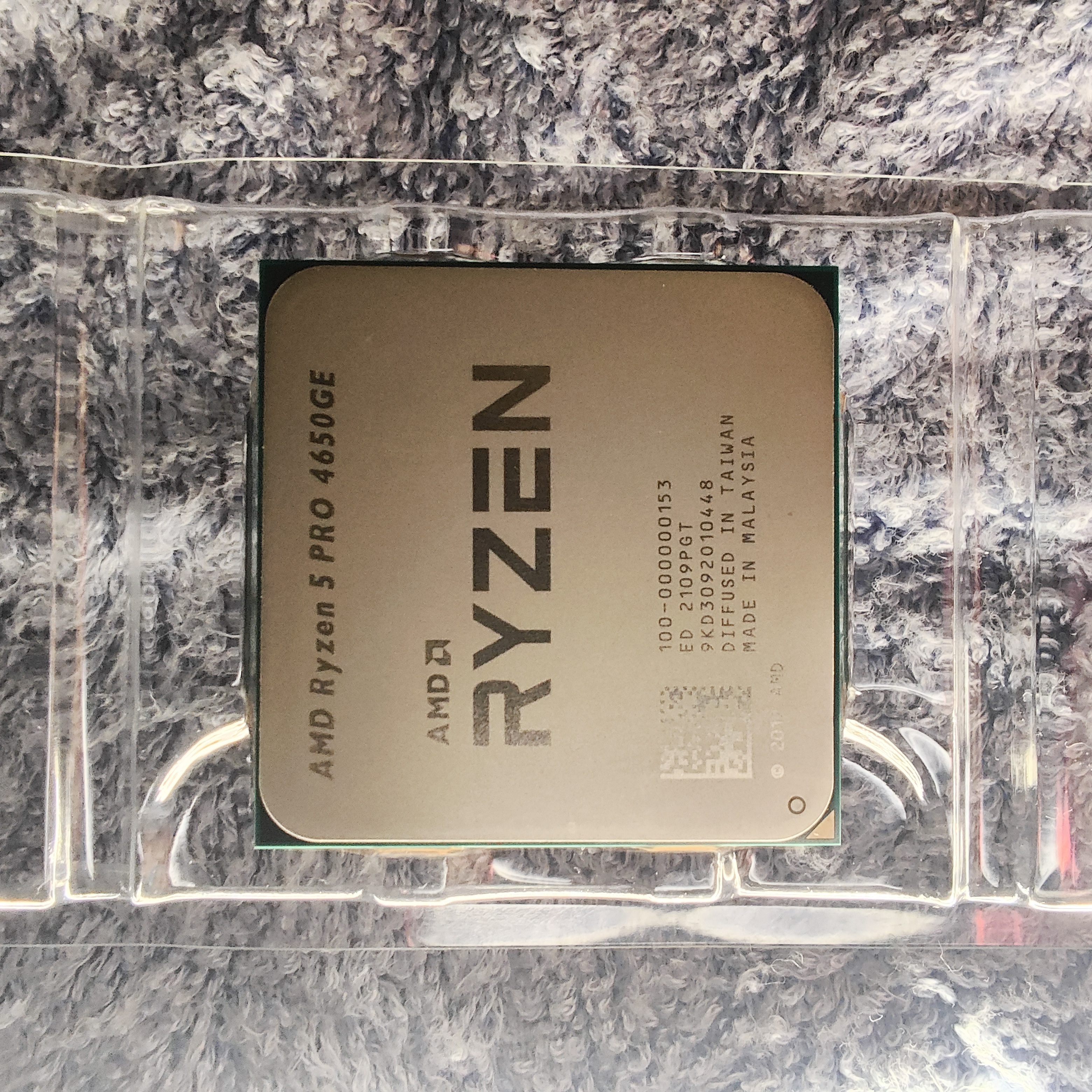
- Alternative Analysis: While Intel Xeon and AMD EPYC are powerful server CPUs, their high cost, heat, and power consumption are overkill for a personal home server and make noise management difficult.
Memory: ECC Unbuffered DIMM (UDIMM)
For the data integrity and system stability described above, ECC memory is a non-negotiable choice. For a Ryzen PRO system, ‘Unbuffered’ type ECC UDIMMs are required.
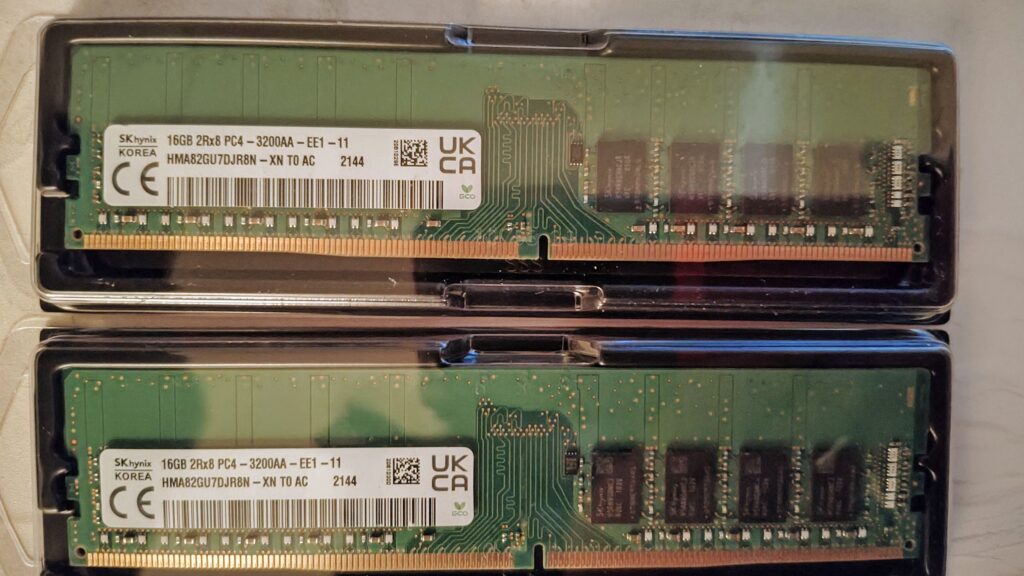
Motherboard: Confirming ECC Feature Support is Key
It is critical to go beyond simply whether ECC memory can be installed and confirm through the official manufacturer’s manual or spec sheet that the board is specified to support the ECC memory feature. This is because some motherboards will only operate in Non-ECC mode even when ECC memory is installed. Choosing products from proven brands like ASUS, ASRock, MSI, or Gigabyte is advantageous for firmware support.
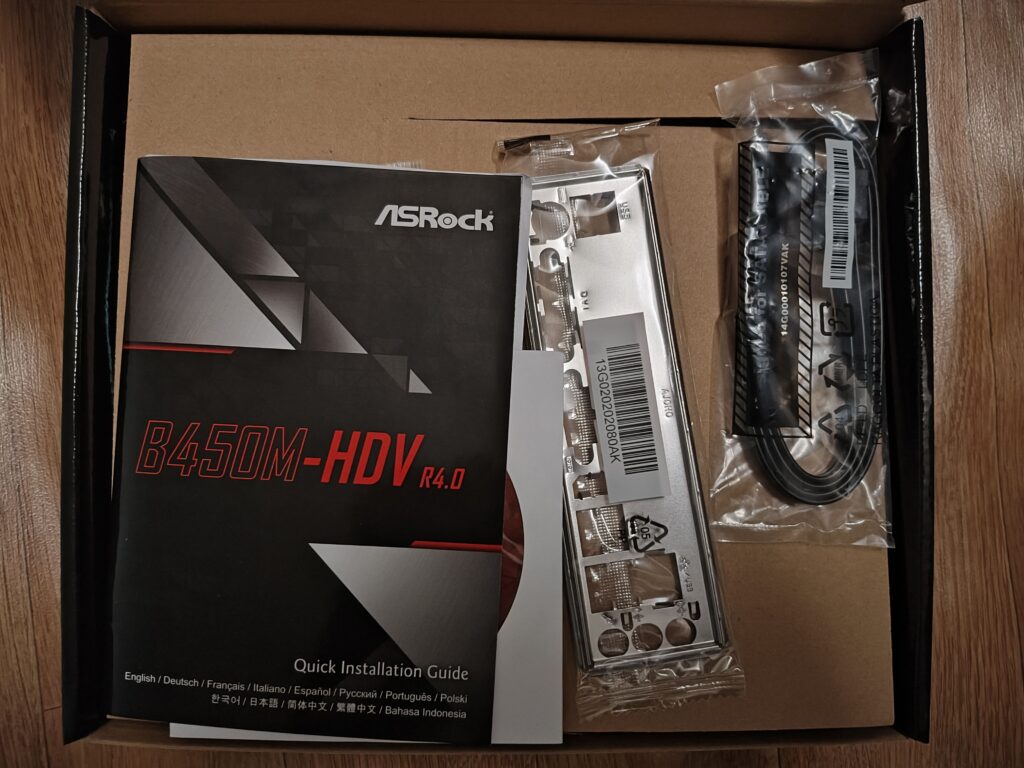
Principle 2: The War on Noise, “Ultra-Quiet”
Once stability is secured, the next step is to eliminate noise. The core strategy is to minimize ‘fans,’ the primary culprits of noise.
Component Recommendations and Selection Criteria
CPU Cooler: Noctua NH-P1 (Fanless)
This is the ultimate solution for removing the biggest source of noise: the CPU fan. Its massive heatsink alone can perfectly dissipate the heat from a 35W low-power CPU, delivering 0dB of complete silence.
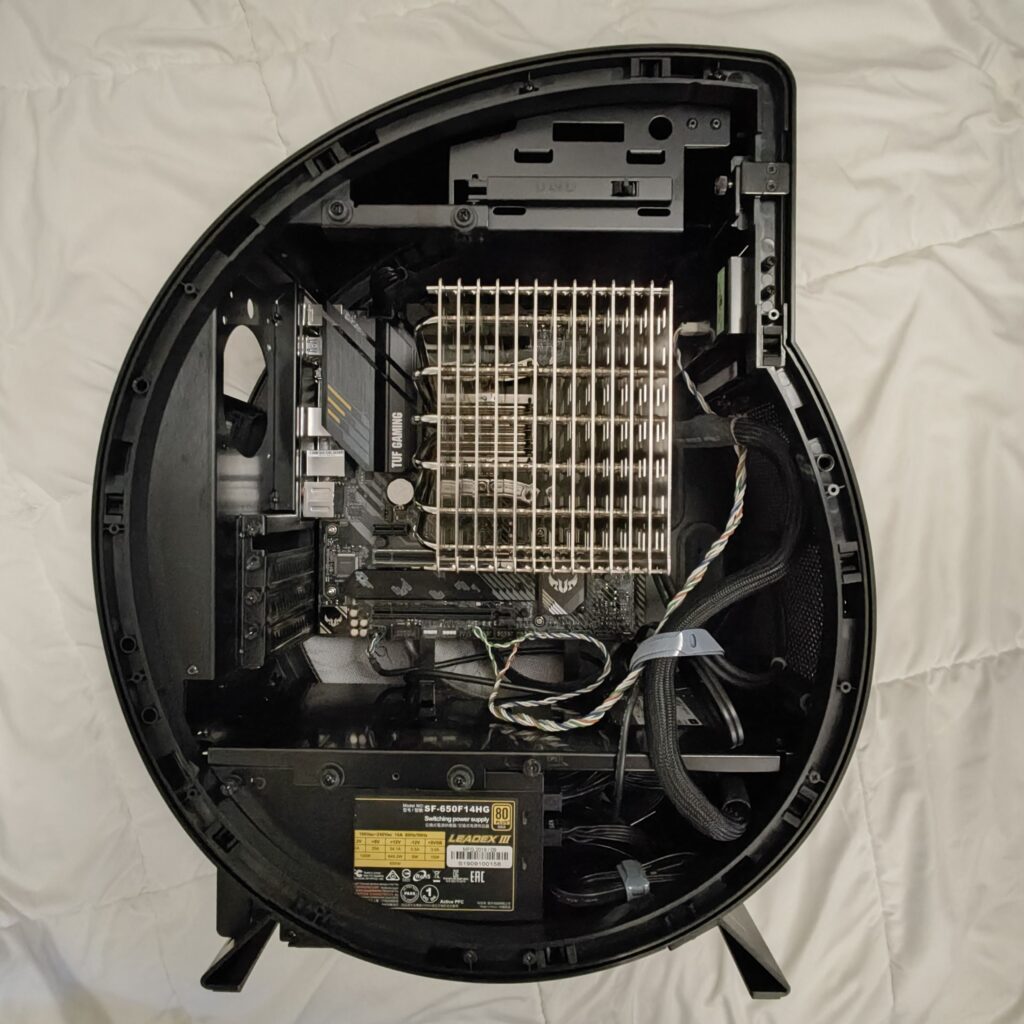
Power Supply (PSU): Lambda A++ Certified Products
The PSU fan is the second major source of noise. The ‘Lambda A++’ rating from Cybenetics’ noise certification guarantees the highest level of quietness, being nearly inaudible under certain load conditions. Products like SuperFlower’s SF-650F14HG can be a great choice.
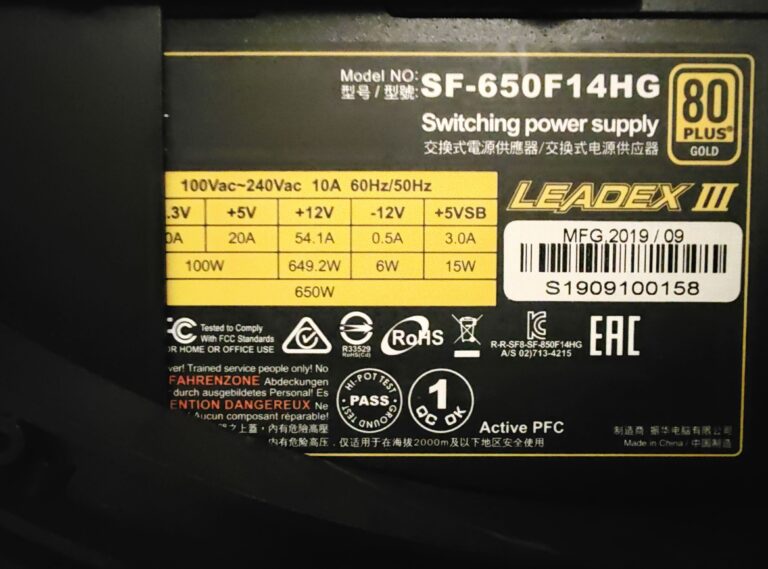
- Note: While 80 Plus is an ‘efficiency’ certification, Lambda is a ‘noise’ certification. For an ultra-quiet system, the Lambda rating should be the priority.
SSD: Prioritize Stability and Durability
For the operating system and main data storage, it is best to choose an SSD with high stability and durability to reduce the risk of data loss.
Case: Consider Ventilation and Cooler Compatibility
To maximize the efficiency of a fanless cooler like the Noctua NH-P1, it is best to choose a well-ventilated mesh case. Case fans should be avoided if possible, or if used, select ultra-low noise models running at very low RPM. Please refer to the Noctua official website for case compatibility information.
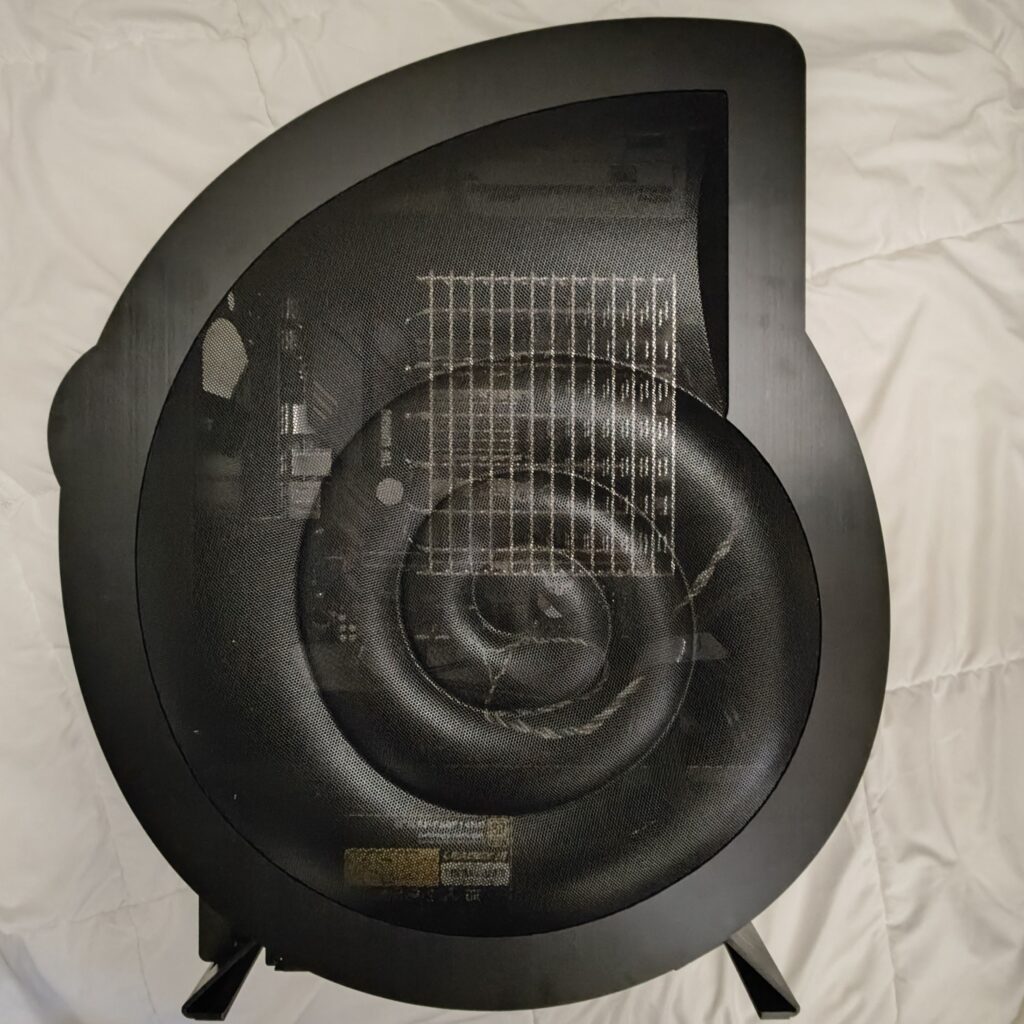
Final Checklist
Before purchasing your components, use the checklist below to confirm final compatibility.
- Motherboard: Have you confirmed ECC feature support in the manufacturer’s official spec sheet or manual?
- CPU Cooler: Have you checked for physical interference with your chosen motherboard and case on the official Noctua NH-P1 website?
- Memory: Is it the correct ECC ‘UDIMM’ type for your selected CPU/motherboard?
I hope this guide helps you build a satisfying home server that achieves both stability and silence.